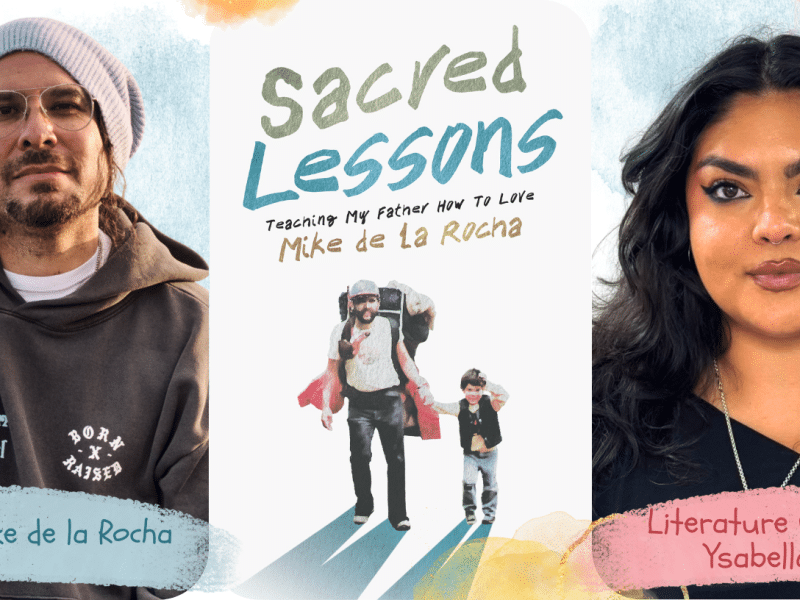Rita Moreno Is the Only EGOT Latina, Why Isn’t She a Hollywood Legend?
Rita Moreno achieved what only 19 people in the entire world have done – achieve EGOT status. But does Hollywood give her the recognition she deserves?

One of the few remaining stars from Hollywood’s Golden Age, Rita Moreno is a Puerto Rican actress, singer, and dancer who has greatly inspired many Latinos. As an immigrant who landed in New York City when she was 5 years old, Moreno embodies the “American dream” because she overcame her humble beginnings and continuous racism in the industry to become a highly accomplished Latina actress in Hollywood.
Starring on Broadway and London’s West End, appearing in over 40 films and even more TV shows, and performing in many regional theaters, Moreno has cemented her place in the industry. Every step of the way, she has been fighting for Latino representation and she continues to do so to this day. At the age of 92, Moreno is still working, continuing her career of over 8 decades.
EGOT Status: a Rare Achievement
Perhaps one of the star’s biggest accomplishments is her EGOT status. Only 19 people have achieved this highly-coveted honor in the entire history of Hollywood and Moreno is the only Latina on the list. But is she recognized for it as much as she should? Is Rita Moreno considered a legend by the Hollywood elite? Well, you likely didn’t know about her EGOT status before this, and that already says a lot about how highlighted she has been by the powers that be.
But what does EGOT status even mean? It refers to the accomplishment of winning the 4 most important American entertainment awards. Namely, the Emmy, the Grammy, the Oscar, and the Tony. The term “EGOT” was coined by actor Philip Michael Thomas in the 80s, and it’s one of the most prestigious accomplishments in the entertainment industry.
Rita Moreno’s EGOT Journey
Achieving EGOT status is a huge deal because it means that your talent goes beyond a single field. Rita Moreno is a great example of that. Her first win on the EGOT journey was the Oscar in 1961 for Best Supporting Actress for her role in “West Side Story.” A fun act about this is that she gave one of the shortest acceptance speeches in the history of the ceremony, simply saying, “I can’t believe it! Good Lord! I leave you with that.” Why was her speech so short? Because she decided she wouldn’t thank anyone. In a New York Times interview, she said, “I remember thinking very clearly, ‘Do not thank anyone.’ They didn’t give you the part as a favor. They were forced to give it to you because you did the best screen test.”
In 1972, Moreno took home a Grammy for Best Recording for Children, as the category was named at that time. She won this award for the cast recording of the PBS TV show called “The Electric Company.” Then, 3 years later, Moreno won a Tony for Best Featured Actress in a Play for playing Googie Gomez in “The Ritz,” a play that was later turned into a movie where she was featured in the same role. Lastly, in 1977, Rita Moreno completed her EGOT by receiving an Emmy for Individual Performance in a Variety or Music Program for her work on “The Muppet Show.”
Why Isn’t Rita Moreno a Hollywood Legend?
To say that Rita Moreno is an obscure figure in the industry wouldn’t be accurate, but the fact is that her accomplishments haven’t been as lauded as those of her fellow actors. Think of names that are often highlighted from Hollywood’s Golden Age, such as Audrey Hepburn, Katharine Hepburn, Grace Kelly, Sophia Loren, and many others. Rita Moreno should be on that list. So why isn’t she? Well, it may have something to do with the fact that immediately after winning her Oscar in 1961, she retired from Hollywood for 7 years.
That’s extremely odd because winning an Academy Award would launch anyone’s career into the stratosphere, especially if they’re so talented. Not for Latinos, though. From the get-go, Moreno was typecast into stereotypical ethnic or sexualized parts, as is often the case for Latinos in the industry. She fought that every step of the way, but the roles offered to her were often of illiterate or immoral characters, men’s playthings, and stereotyped, racist versions of Native Americans, Egyptians, Polynesians, and more.
Despite humiliations, she continued building her career, finally landing her breakout role in “West Side Story.” However, that didn’t change things for her. After her Oscar win, she was exclusively offered the same roles as before, so Moreno decided enough was enough. That’s when she pivoted to theater, TV, one-woman shows, and activism, fighting for Latino and women’s rights.
Eventually, she went back to Hollywood in 1968 and starred in “The Night of the Following Day.” Despite Hollywood’s best efforts, Rita Moreno has built a solid career and, at the age of 92, she’s still going strong. That doesn’t take away from the fact that she was robbed of the opportunity to become a household name. One has to wonder… What would’ve happened if Rita Moreno had been given the opportunities reserved for white actors at the time?




